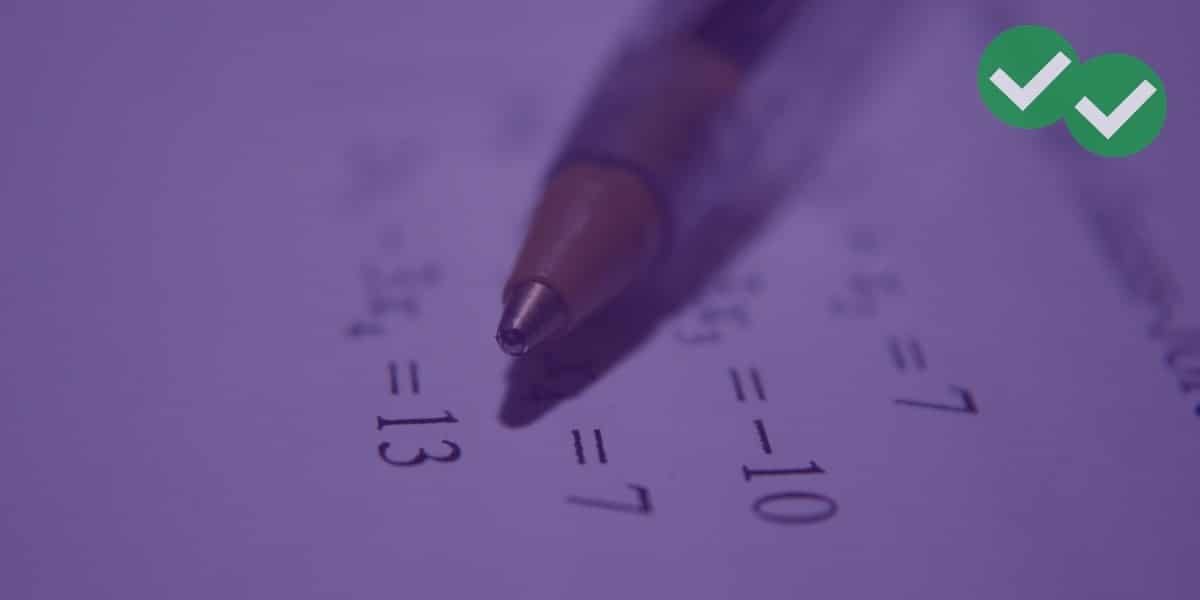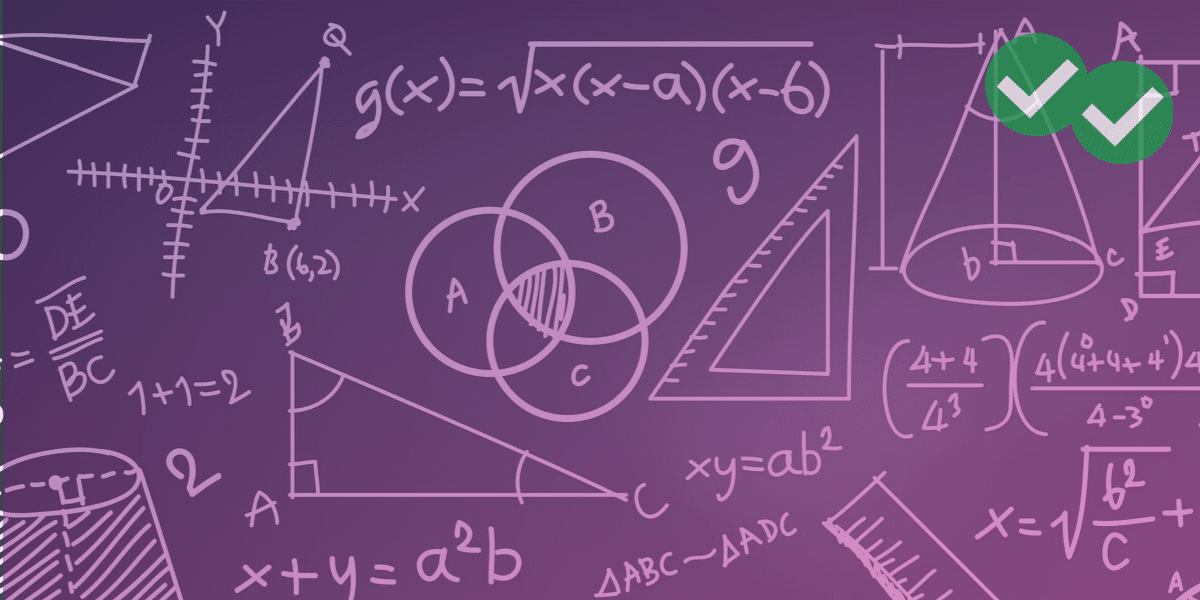This is the sister post to I’m Terrible at GRE Verbal! Help! 🙂
Sometimes we all need a little GRE math help. It usually doesn’t take more than the first session for a new student/tutee to look over me and confide sheepishly,
“I need help with GRE math. I’m so bad at it!”
Mind you, I hear this not only from students who haven’t seen an equilateral triangle in 20 years. Even those students who end up doing better on the quantitative section than the verbal section say this (and some continue to say this, even once they’ve scored in the top 20% on quant).
My belief is that, for the most part, the “I’m terrible in math” shtick is nothing more than an attitude. And a bad one at that. It is self-defeating, and doesn’t help students improve. Instead the refrain should be “I missed that problem…I’m going to understand why so that I will get it the next time around.” And especially if it is tough math question, your attitude should be, “I’m not the only one who got that one wrong.”
Ultimately, the whole bad at math thing is ironic: the GRE math is not your high school math. It is a test of how think logically. Numbers play only a small part. And believe it or not, even formulas are just a piece of the puzzle. In high school, you could mostly rely on memorizing the formula. Not so with the GRE.
Thus the negative attitude is most likely based on a different kind of math. So take a deep breath. You are not terrible at math! 🙂 You are here to learn how to do well on the GRE math. So pay attention to some important points below.
Develop Number Sense
Sure, the GRE allows you to use a calculator. But using it will often slow you down. In order to make yourself a more efficient GRE test taker, at least quant-wise, you should get comfortable around numbers. Now typically is that time when the negative voice sounds in your head. But keep it at bay by doing the following.
Take a set of four numbers. For simplicity sake, I will use 1, 2, 3, and 4. Your goal is to make the number 99. You can use any of the math signs: +/-/x (my computer doesn’t have the division sign—but that one too!).
You can also use the square root sign (√), and powers of numbers, such as  . The next rule, and the most important one, is do the operations in your head. That’s right no pencil and paper. We are talking about using your raw mental math skills.
. The next rule, and the most important one, is do the operations in your head. That’s right no pencil and paper. We are talking about using your raw mental math skills.
Once you’ve been able to come up with 99, then choose a different set of four numbers. For instance, let’s say were born in 1987. Or maybe your address is 2995. This is a great game to play when you are waiting for the bus, a food order, or maybe a friend. Speaking of friends, it’s fun game to play with others, especially if you can figure out how to make ‘99’ first.
The point is your brain should be in number shape come time for the GRE. Or things will be noticeably more difficult for you.
Learn how the GRE works
As I said, the GRE quant is not your high school math exam. Try a few practice questions. What do you notice? Well, you’ll probably notice how the test is confusing. Indeed the answer choices are often meant to trap you. Then there is the actual question itself, which you may have to read a few times over. And of course at this point the “I’m terrible at math” voice comes roaring back. Despair not: these questions are confusing for many test takers, especially those who are seeing GRE math problems for the first time. Many people don’t even know how to start studying for GRE math.
Once you get over the initial frustration of not being able to understand what the question says, keep some of the following GRE math tips in mind.
1. Plugging in
When you see variables in the answer choices or in the problem, you do have to do algebra. In fact, algebra often gets you into trouble. By learning the technique of plugging in numbers you can make a seemingly intractable problem seem that much easier.
2. Approximation/Estimation
The great thing about the GRE is it is multiple-choice (except for the numeric entry question). Learn to look at the spread between the answer choices. Are the answer choices very close together? Are some nice round numbers, and other unpleasant, unwieldy numbers, such as 119? Often the GRE will present answer choices in such a way that you can eliminate a few obviously wrong answers, and then home in on the correct answer by approximating.
3. Know your fundamentals
At the end of the day, you have to know how to add fractions, the formula for area of the circle, how to solve work rate problems, or the rules of exponents. Learn the basics and feel comfortable applying them. Learn most of the major formulas. But remember, they are only the tip of the iceberg when it comes to solving a problem. To truly get anywhere on the GRE, you have to be able to…
4. Learn how to unravel the question
This is the pith—that is, the essence—of the GRE Quant. Imagine the math problem is a riddle, and you must unravel it. In other words, you must figure out what the question is asking, and then arrive at a solution path, i.e., the necessary steps to arrive at the correct answer.
Typically, the formula stuff only comes at the very end. A common misconception amongst students is that they only need to know a formula to solve a question. This is often decidedly not the case. Without unraveling the problem first, having a formula isn’t going to get you anywhere.





